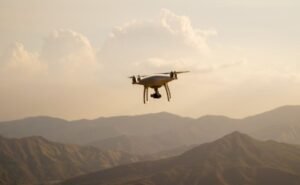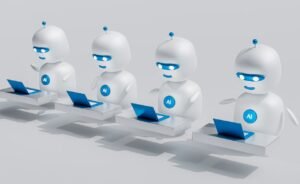Artificial Intelligence vs Human Intelligence
Introduction
With the rapid advancements in technology, artificial intelligence (AI) has become a topic of great interest and debate. AI is the simulation of human intelligence in machines that are programmed to think and learn like humans. However, it is important to understand the differences between AI and human intelligence to grasp their potential impact on various industries and society as a whole.
Key Takeaways
- AI is the simulation of human intelligence in machines.
- Understanding the differences between AI and human intelligence is crucial.
- AI has the potential to revolutionize various industries.
- Human intelligence provides creativity, emotional intelligence, and ethical decision-making.
- AI and human intelligence can work together to achieve greater success.
The Differences Between AI and Human Intelligence
**While AI is designed to mimic human intelligence, there are distinct differences.** AI can process vast amounts of data quickly and accurately, unlike humans who are limited by their cognitive capabilities. On the other hand, human beings possess unique qualities like creativity, emotional intelligence, and ethical decision-making, which are yet to be replicated by machines. *For example, AI can analyze large datasets and identify patterns more efficiently, but it lacks the emotional intelligence to understand human feelings.*
AI in Different Industries
AI has the potential to revolutionize various industries by automating repetitive tasks, enhancing productivity, and providing valuable insights. Here are some industries where AI is making a significant impact:
- Healthcare: AI is improving diagnostics, drug discovery, and personalized medicine.
- Finance: AI algorithms can analyze financial data and predict market trends with accuracy.
- Transportation: Self-driving cars powered by AI technology are becoming a reality.
- Manufacturing: AI-driven robotics streamline production processes and optimize efficiency.
- Customer Service: AI chatbots provide instant customer support and assistance.
The Synergy of AI and Human Intelligence
**Instead of pitting AI against human intelligence, the synergy of both can lead to remarkable outcomes.** AI systems can augment human capabilities by processing large amounts of data, automating routine tasks, and providing valuable insights. Humans, on the other hand, can contribute their higher-level thinking, creativity, and emotional intelligence to make ethical decisions in complex scenarios. *The collaboration between AI and human intelligence can lead to innovative solutions that maximize efficiency and effectiveness.*
Table 1: Comparison of AI and Human Intelligence
| AI | Human Intelligence |
|---|---|
| Can process vast amounts of data quickly and accurately | Provides creativity and out-of-the-box thinking |
| Does not possess emotional intelligence | Can understand human emotions and empathy |
| Relies on algorithms and programming | Has the ability to make moral and ethical decisions |
| Lacks intuition and imagination | Can think abstractly and imagine possibilities |
AI vs Human Intelligence: Ethical Considerations
As AI continues to advance, ethical considerations arise. *It is crucial to establish guidelines and regulations to ensure AI is used responsibly and ethically.* Transparency in AI decision-making processes and addressing potential biases is of utmost importance. Moreover, discussions on the impact of AI on jobs and society should be prioritized to find ways to mitigate any potential negative consequences.
Table 2: Impact of AI on Jobs
| Impact | AI’s effect on Jobs |
|---|---|
| Automation | Elimination of repetitive tasks and increased efficiency |
| Augmentation | Assisting humans in their tasks to enhance productivity |
| Creation | New job opportunities in AI-related fields |
| Replacement | Some job roles may become obsolete due to AI advancements |
The Future of AI and Human Intelligence
The future lies in the collaboration between AI and human intelligence. *While AI can enhance efficiency and productivity, it is human intelligence that provides the unique qualities of emotional connection, creativity, and ethical decision-making.* By leveraging the strengths of both, we can achieve remarkable advancements across various industries, ultimately benefiting society as a whole.
Table 3: Real-life Applications of AI and Human Intelligence Collaboration
| Industry/Field | Product/Service |
|---|---|
| Medicine | AI-assisted diagnostics with human doctors providing personal care |
| Art | AI-generated art curated and adapted by human artists for exhibitions |
| Education | AI-driven personalized learning platforms supported by human teachers |
| Business | AI-powered data analytics with human experts interpreting insights for strategic decisions |

Common Misconceptions
Artificial Intelligence is Smarter than Human Intelligence
One common misconception about artificial intelligence is that it possesses greater intelligence than humans. However, it is important to note that AI systems are designed to perform specific tasks and excel in narrow domains, while human intelligence is much broader and adaptable.
- AI algorithms are restricted to the data they have been trained on.
- Human intelligence involves reasoning, creativity, and emotional understanding, which AI lacks.
- AI algorithms can make mistakes based on incomplete or biased data.
Artificial Intelligence Will Replace Human Jobs Completely
Another misconception is that artificial intelligence will eradicate human jobs entirely. While it is true that AI has the potential to automate certain tasks, the fear of complete job replacement is unfounded. AI works in combination with human intelligence, augmenting human abilities and improving productivity.
- AI is more successful at automating repetitive or mundane tasks.
- Many job roles require human empathy, critical thinking, and complex problem-solving, which AI lacks.
- AI can complement human workers by handling tasks that are time-consuming or dangerous.
Humans Can Easily Outsmart Artificial Intelligence
Some people believe that humans can easily outsmart artificial intelligence and manipulate its behavior. However, AI algorithms are continuously evolving and becoming more sophisticated in their decision-making. It is not as simple as finding loopholes or tricking the system.
- AI algorithms can detect patterns and anomalies that human brains may overlook.
- Advancements in AI technology, such as machine learning, enable algorithms to learn and adapt to new information.
- Attempts to outsmart AI systems can lead to unintended consequences and unpredictable outcomes.
Artificial Intelligence Poses Immediate Existential Threat
There is a common fear that artificial intelligence poses an immediate existential threat to humanity, similar to science-fiction scenarios. However, this misconception overlooks the fact that AI development is highly regulated and as of now, AI systems remain under human control.
- AI operates within predetermined boundaries set by human programmers and designers.
- Ethical considerations, safety measures, and regulations are in place to prevent AI from causing harm or becoming uncontrollable.
- AI systems still lack comprehensive understanding of human complexity and consciousness.
Artificial Intelligence is Objective and Unbiased
Lastly, there is a misconception that AI is inherently objective and devoid of biases. However, AI algorithms are created by humans and therefore reflect the biases and limitations present in the data used for training. AI can inadvertently perpetuate or amplify existing societal biases.
- Unconscious biases in data can reinforce inequality when used in AI decision-making processes.
- AI algorithms can be susceptible to bias in their programming, training data, or even interpretation of user feedback.
- Ongoing efforts are being made to mitigate bias in AI systems through diverse data sets and ethical AI development practices.

Advantages of Artificial Intelligence
Artificial Intelligence (AI) has revolutionized various industries by enabling machines to perform tasks that were previously only possible for human intelligence. The table below highlights some of the key advantages of AI technology.
| Advantages of AI |
|---|
| Enhances efficiency and productivity |
| Reduces human error |
| 24/7 availability |
| Ability to process vast amounts of data quickly |
| Improved decision-making capabilities |
Advantages of Human Intelligence
While AI brings numerous benefits, human intelligence still possesses unique qualities and capabilities that set it apart. The following table outlines some advantages of human intelligence in comparison to AI.
| Advantages of Human Intelligence |
|---|
| Creative problem-solving abilities |
| Emotional intelligence and empathy |
| Adaptability to complex and unpredictable situations |
| Advanced language comprehension and communication |
| Moral and ethical decision-making |
AI Applications in Healthcare
The integration of AI in healthcare has shown great potential in improving patient outcomes. The table below presents some significant applications of AI in the healthcare industry.
| AI Applications in Healthcare |
|---|
| Medical image analysis for diagnosis |
| Drug discovery and development |
| Virtual assistants for patient support |
| Predictive analytics for early disease detection |
| Surgical assistance and robot-guided procedures |
AI in the Workforce
AI’s impact on the workforce is a widely discussed topic. The following table presents some key trends and predictions regarding AI’s influence on employment.
| AI in the Workforce |
|---|
| Automation of routine and repetitive tasks |
| Shift towards higher-skilled and specialized jobs |
| Creation of new job opportunities in AI development |
| Potential job displacement in certain industries |
| Increased demand for AI-related skills in the workforce |
Ethical Considerations of AI
As AI continues to advance, ethical considerations become crucial. The table below presents some ethical concerns associated with the development and use of AI technology.
| Ethical Considerations of AI |
|---|
| Privacy and data protection |
| Transparency and explainability of AI algorithms |
| Biased decision-making by AI systems |
| Impacts on employment and societal inequality |
| Responsible use of AI in military applications |
The Future of AI and Human Collaboration
The future involves a harmonious collaboration between AI and human intelligence. The table below depicts some potential scenarios of AI and human collaboration in various fields.
| The Future of AI and Human Collaboration |
|---|
| Medical diagnosis supported by AI, confirmed by doctors |
| Autonomous vehicles with human intervention capability |
| AI-assisted creativity in arts and design |
| Robots working alongside humans in manufacturing |
| Ethical decision-making frameworks incorporating human values into AI |
Cognitive Computing and AI
Cognitive computing is a field closely related to AI, focusing on simulating human thought processes. The table below illustrates the key components of cognitive computing and their applications.
| Cognitive Computing and AI |
|---|
| Natural language processing (NLP) for human-like communication |
| Machine learning algorithms for pattern recognition |
| Computer vision for visual data analysis |
| Knowledge representation and reasoning for decision-making |
| Virtual agents for intelligent customer support |
Impact of AI on Education
AI has the potential to transform education by offering new learning experiences and personalized approaches. The table below presents some examples of AI’s impact on education.
| Impact of AI on Education |
|---|
| Smart tutoring systems for personalized learning |
| Automated grading and feedback systems |
| Virtual reality (VR) for immersive educational experiences |
| Adaptive learning platforms based on student performance data |
| AI-enabled content creation and curriculum development |
The Role of AI in Cybersecurity
AI plays a significant role in strengthening cybersecurity measures against evolving threats. The table below showcases specific applications of AI in the field of cybersecurity.
| The Role of AI in Cybersecurity |
|---|
| Threat detection and prevention through anomaly detection |
| Real-time monitoring and response to security incidents |
| AI-powered authentication and access control |
| Automated vulnerability assessment and patch management |
| Cyber threat intelligence analysis for proactive defense |
Artificial Intelligence and human intelligence each possess unique strengths that contribute to our society and the advancement of technology. While AI excels at data processing, efficiency, and analysis, human intelligence offers creativity, empathy, and adaptability. The perfect balance lies in collaboration and harnessing the strength of AI while preserving the essential qualities of human intellect. By addressing ethical concerns, fostering collaboration, and embracing the potential benefits, we can shape a future where AI enhances human capabilities and leads to progress in various domains.




